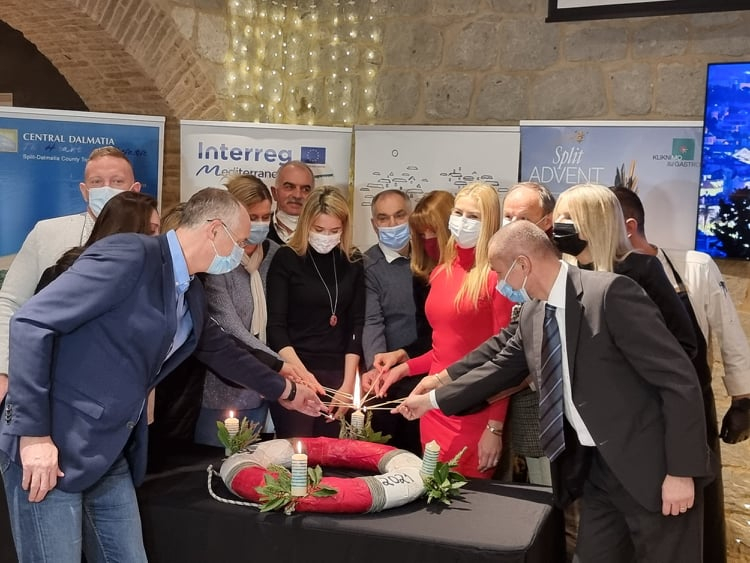Gastroadvent is a unique event that has promoted the Mediterranean diet for decades through a fusion of nutrition, gastronomy, and tourism. Thanks to the engagement and participation of dedicated journalists, who continue to bring light to Split, the event persistently shares scientific knowledge woven into gastronomic skills, the numerous health benefits of the Mediterranean diet, and the preparation of dishes from unique ingredients.
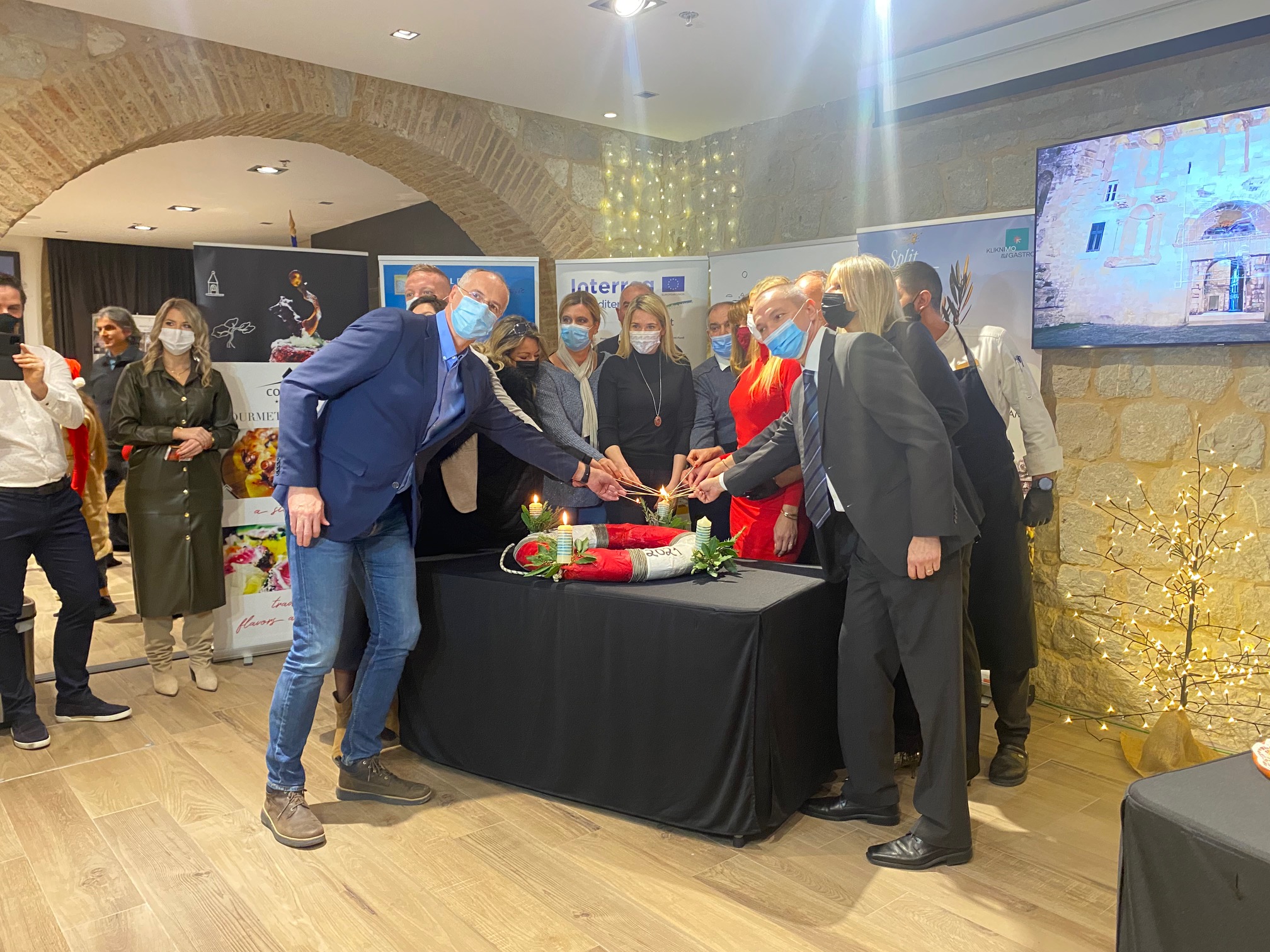
The theme of this year’s Gastroadvent is “Mediterranean nutrition is sustainable, achievable, and responsible.” In its original form, the stated principle is the basis of action and, as such, should remain the foundation of behavior. The Mediterranean Sea connects all the countries founded on the Mediterranean diet. For the Mediterranean diet to be sustainable, we must responsibly dispose of our waste and use resources rationally.
The holiday season is a time to imbibe and socialize with family and friends, which is why both Dalmatian and Romanian holiday delicacies were in the spotlight at the lighting of the third Advent candle. Romania was honored at today’s Gastroadvent thanks to Stjepan Roglić, Honorary Consul of Romania in Split.
The most delicious prosciutto is produced in the Mediterranean region. Resources are used rationally, especially the sea and the bura wind, to obtain a dried ham product. The first recorded mention of prosciutto dates back to 100 BC and is preserved in the Italian city of Parma. And they, just like us, have kept the tradition of producing prosciutto all these years.
But this is more than just a 2,000-year-long tradition. In addition to gastronomic quality, it is essential to know the nutritional facts of prosciutto.
The tradition of Croatian production has been preserved in Hrvace for decades. The Lovrić family researched and produced traditional meat products in the 1980s when every MEL product was created thanks to hard work. The company’s wide range includes products made from fresh meat (beef, pork, veal, lamb) and products that bear the “Originally Croatian” and “Croatian Quality” labels. The company MEL-JAKOV LOVRIĆ distributes its products to stores and also supplies restaurants and hotels. MEL products represent the tradition of excellence and the best Dalmatian taste. Alkar salami is their jewel among the products.
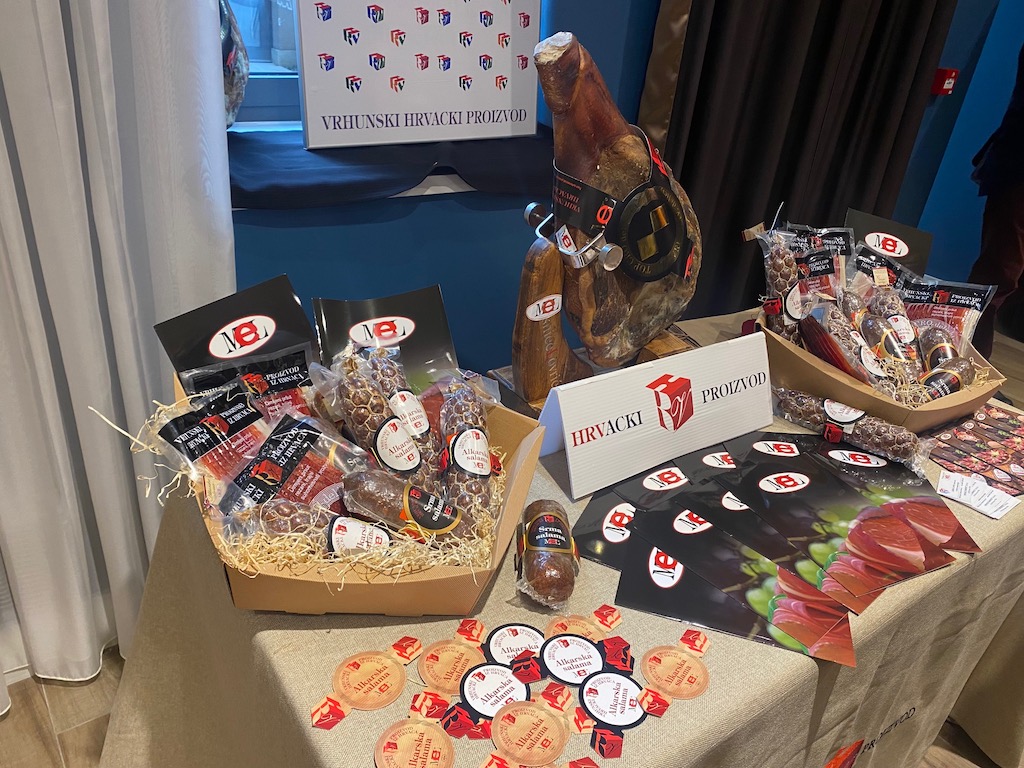
The sumptuous culinary table was designed and prepared by chef Duje Terze (Hotel Cornaro) and his team, paired with Nikolica winery’s top-quality 2019 Dingač and Postup, made by the Radović family, Cornaro Hotel owners.
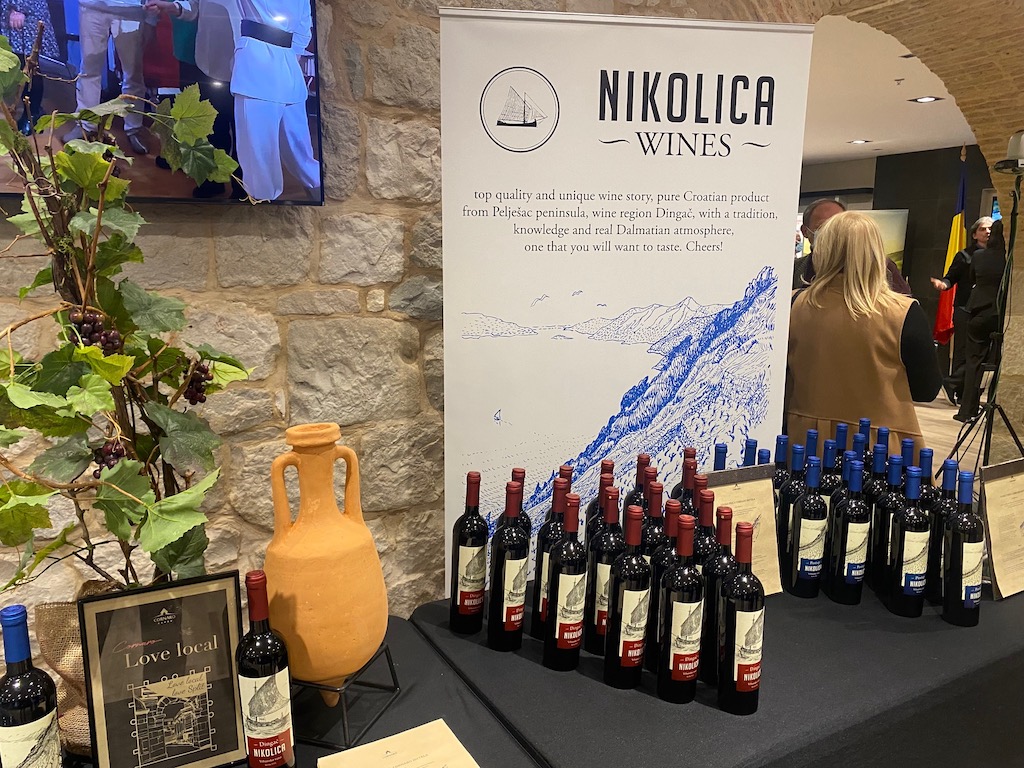
Today’s menu included Dalmatian prosciutto with sweet and savory tapenade and skuta, a selection of quality Dalmatian cheeses, chickpea and prosciutto spread, tapenade with olives and prosciutto, puff pastry and prosciutto, bruschetta with onion jam, skuta, and prosciutto, bruschetta with tuna pate, bruschetta with pear, gorgonzola and prosciutto, salty baskets with prosciutto, melon and prosciutto, cold cuts, a selection of quality Dalmatian cheeses, goat cheese and prosciutto tart, Vis pie, foccacia with olives, tomatoes, herbs, bakalar, monkfish fillet wrapped in prosciutto, octopus with prosciutto and chickpeas, homemade gnocchi with prosciutto and sage, tagliatelle with shrimp and prosciutto, veal breast stuffed with prosciutto and leeks, prosciutto,cold salad, French salad, caprese salad, octopus salad, and rožada, Split cake, and fritters for dessert.
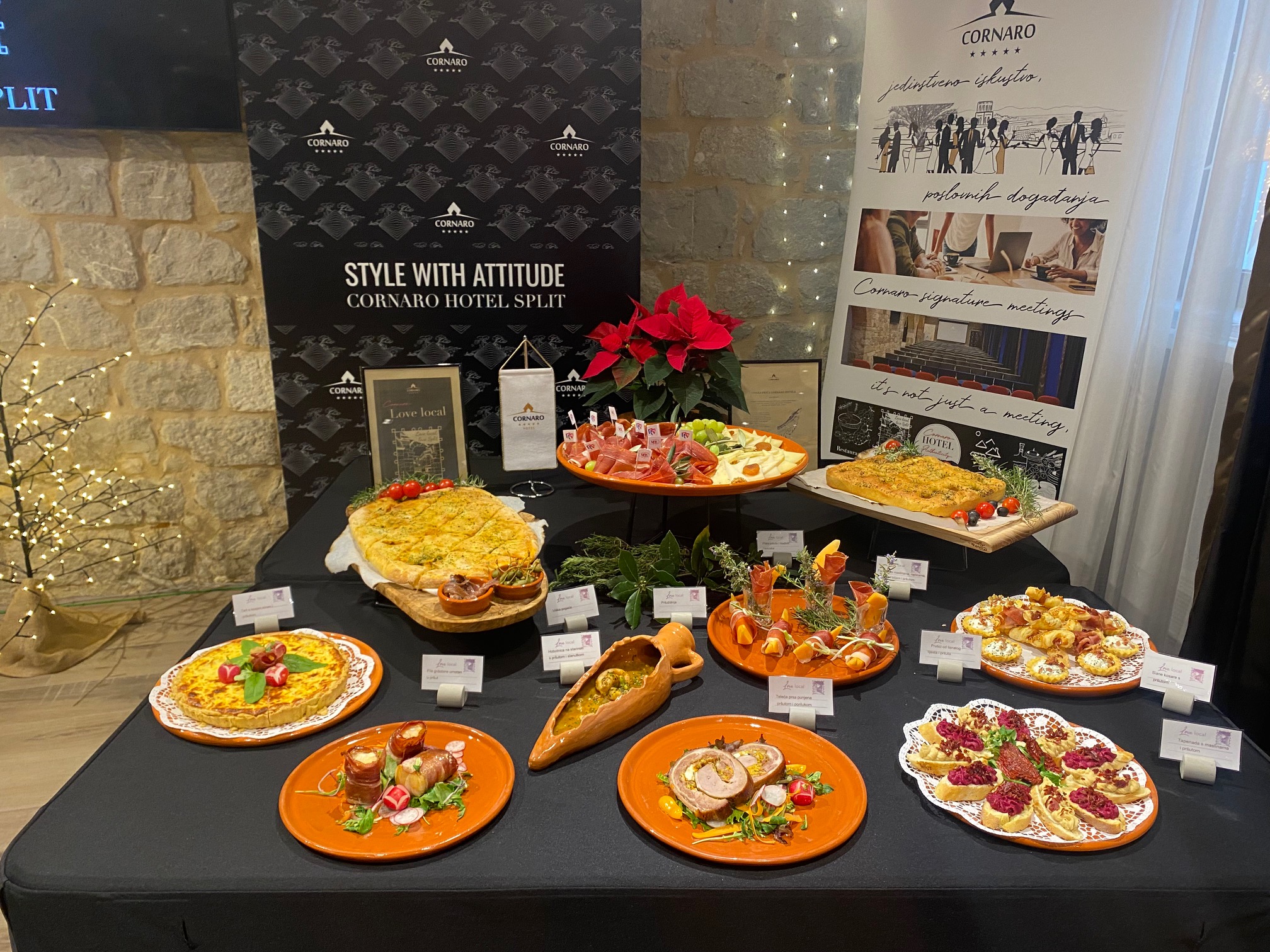
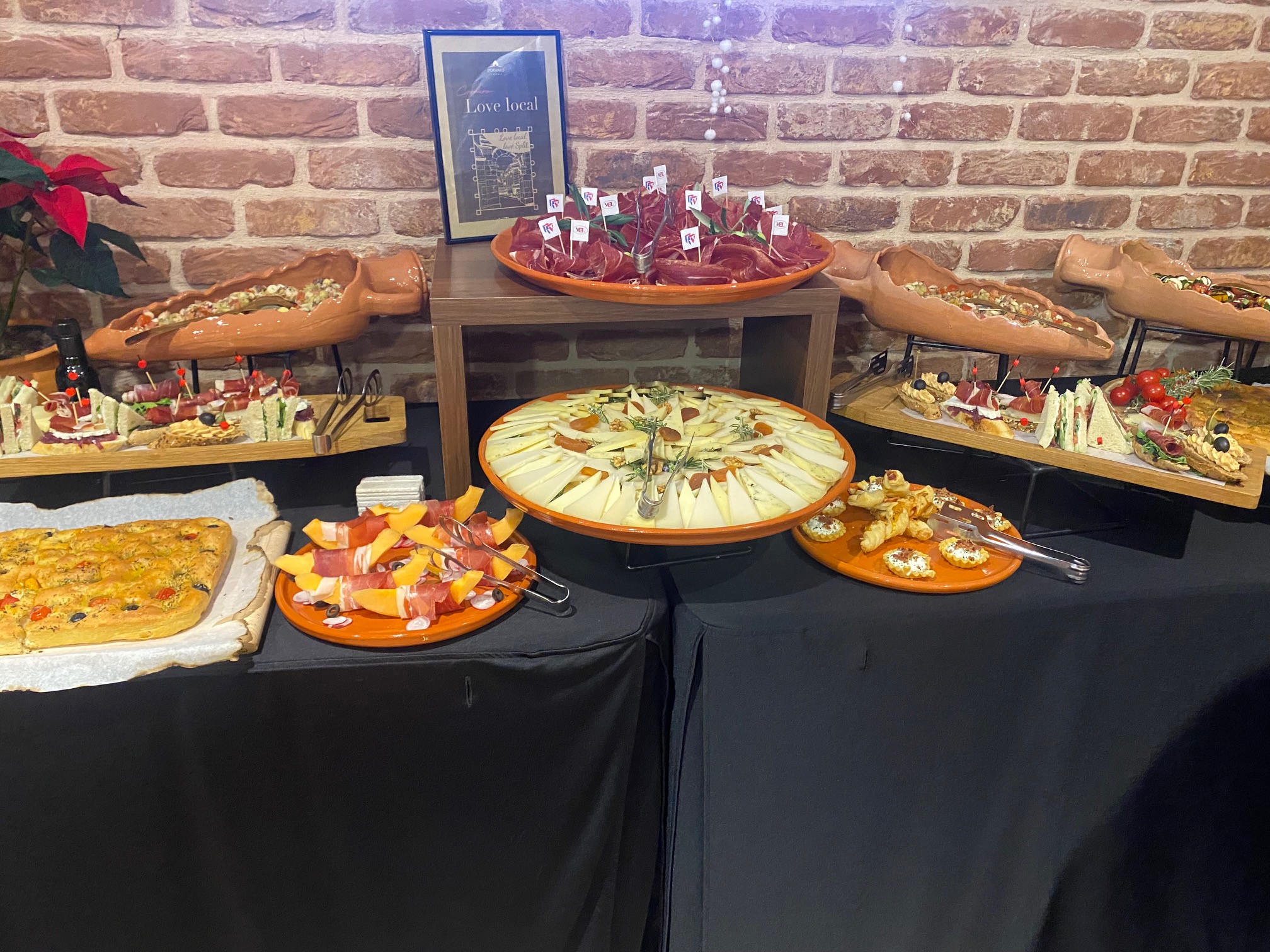
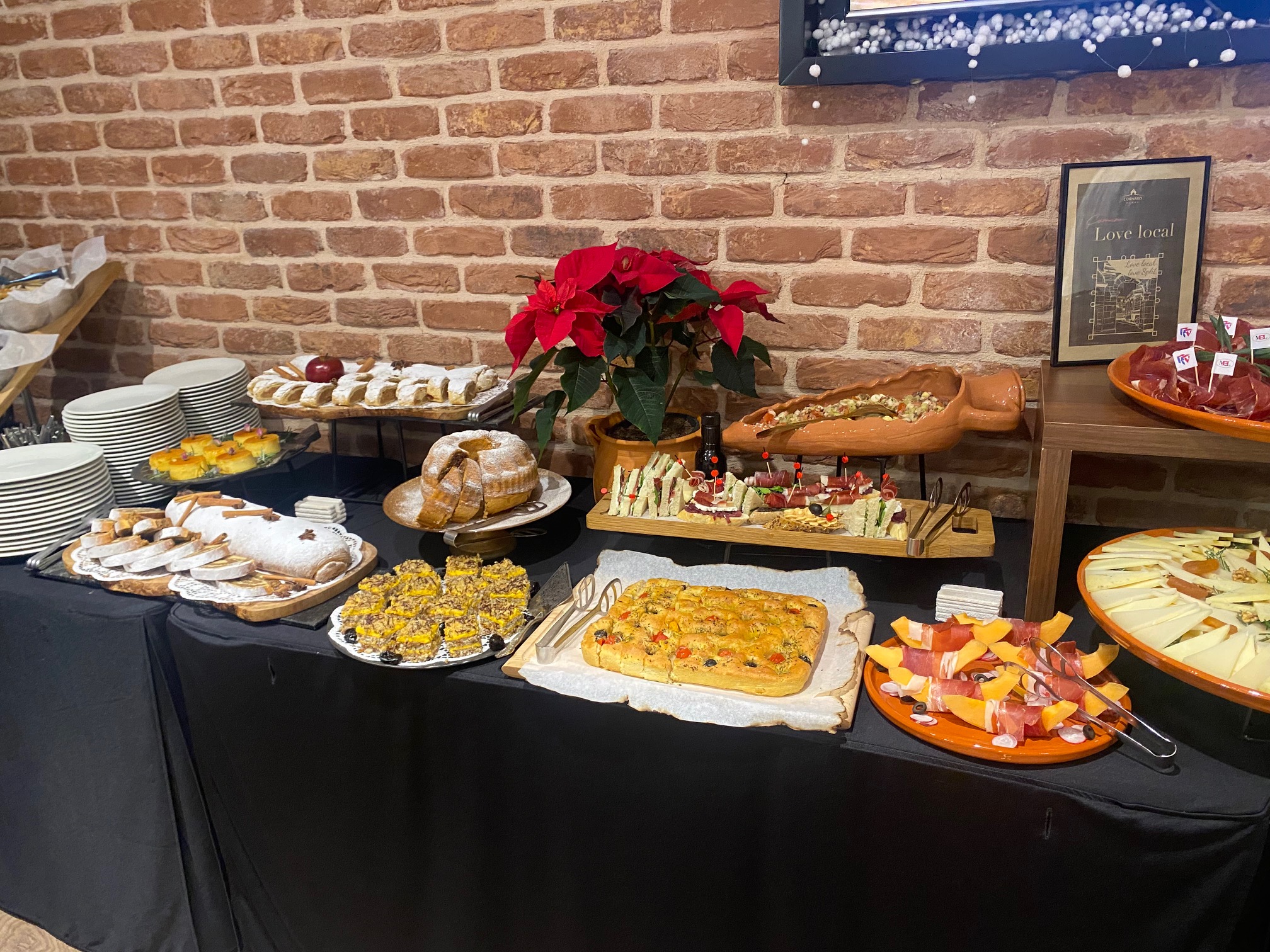
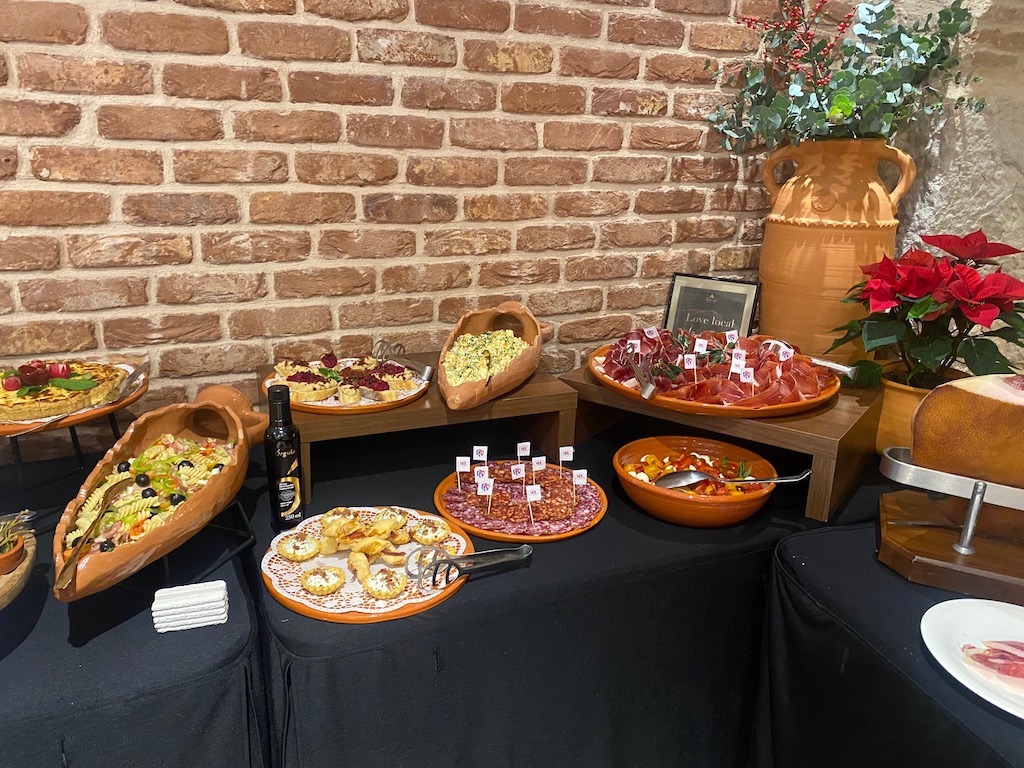
The Romanian food table was presented by Frane Ivan from the Community of Croats in Romania and included mature sheep cheese, cold plates of dried meat products with pickled vegetables, fish caviar spread, traditional vegetable spread, mushroom spread, Christmas cake, sweet quince dessert, salty pretzels, and ROM chocolates and Puffs as gifts for guests to take home!
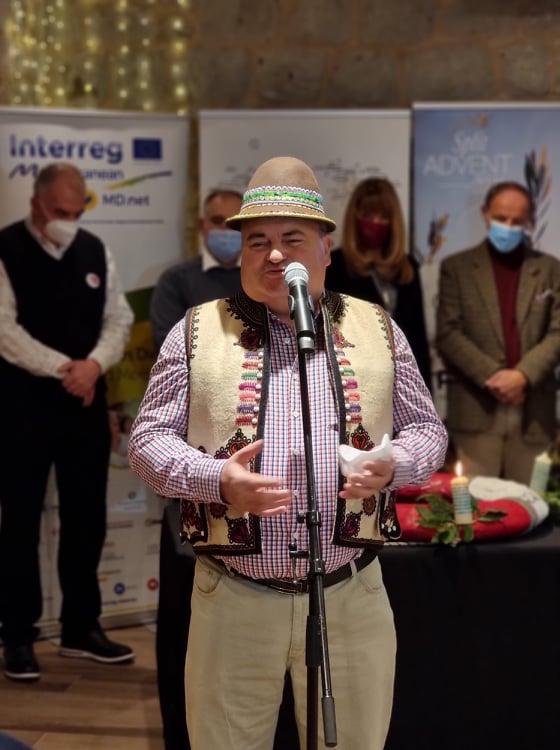
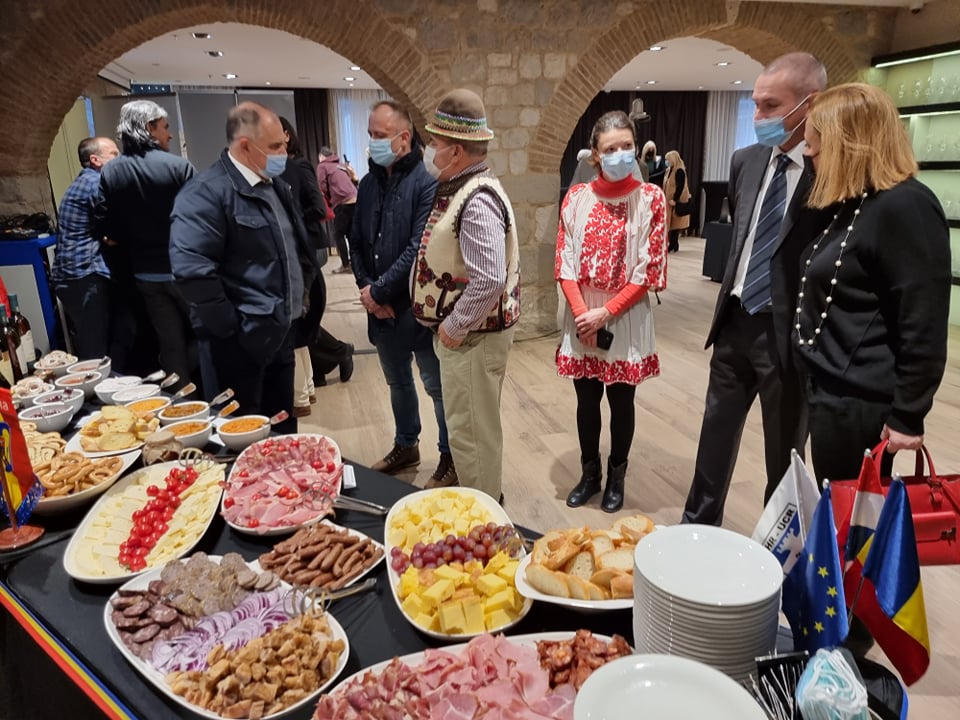
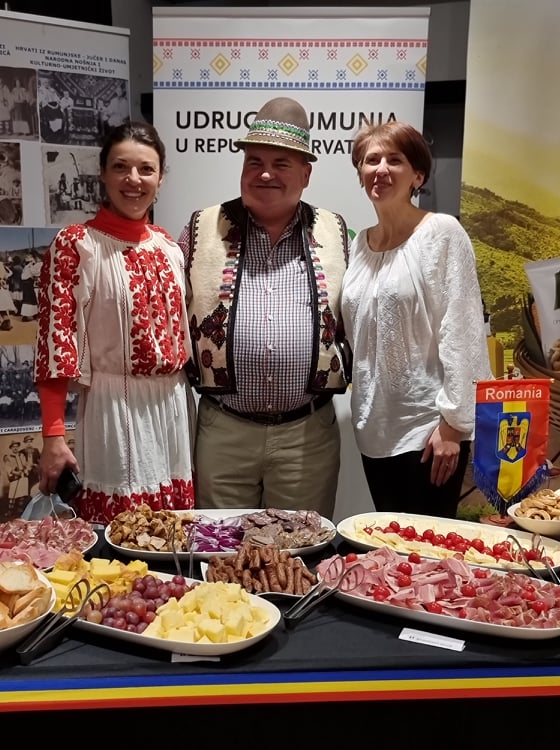
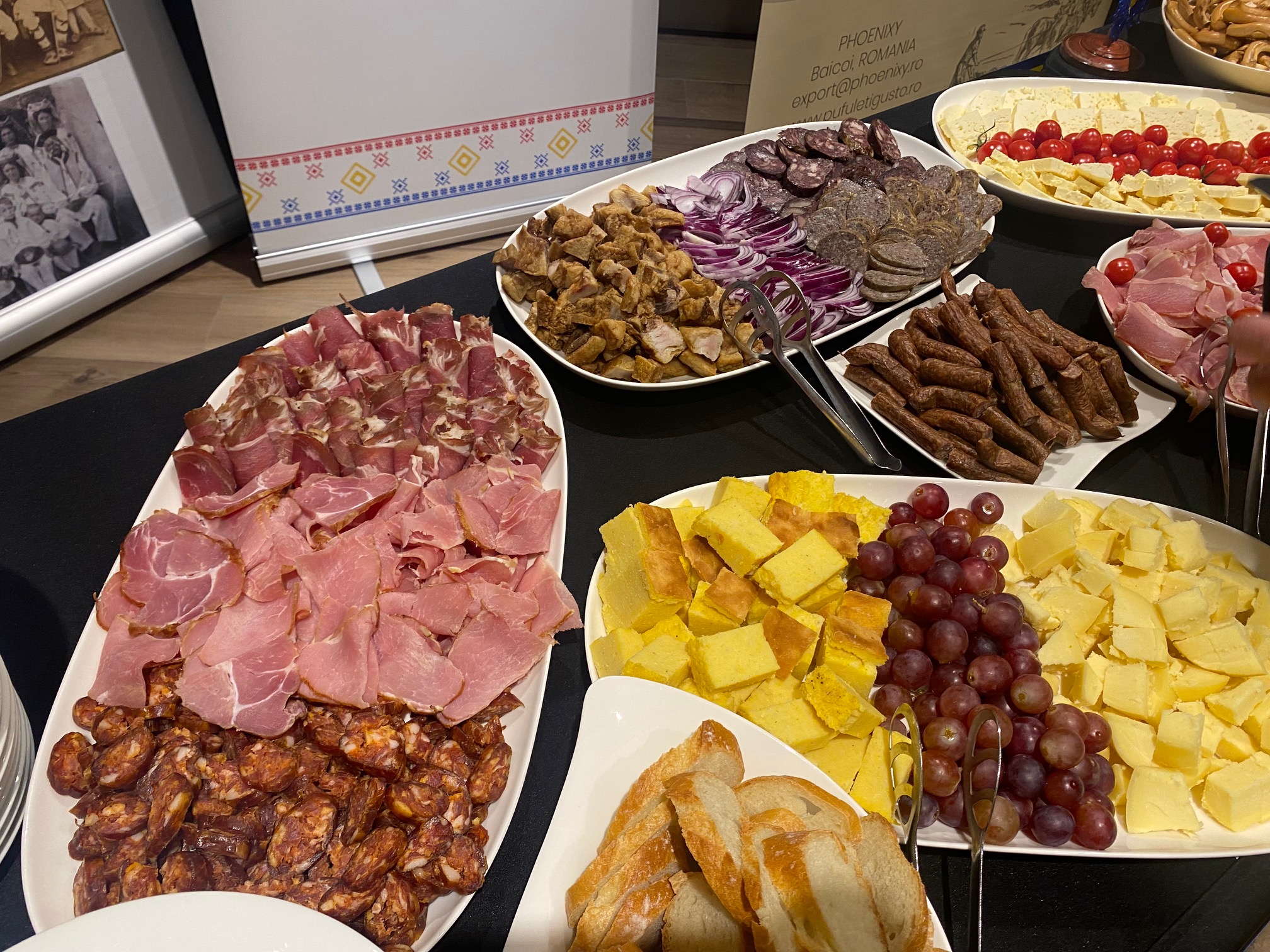
Split-Dalmatia County and the Split-Dalmatia County Tourist Board are avid supporters of Gastroadvent in Split, thus promoting the Mediterranean diet and local producers, entrepreneurs, and tourism workers.
The Split Tourist Board has worked hard to position the destination, harnessing a natural combination of history, gastronomy, and modernity, all to protect the components of the Mediterranean diet. The City of Split is determined to support projects that benefit its residents and demands guests after authentic experiences and new technological opportunities.
The Croatian Chamber of Commerce has advocated for years to encourage the representation of domestic products, and since 1997 has implemented the national project “Let’s Buy Croatian.” The project aims to increase the consumption of local products and thus support the economy. This project is of particular importance, emphasized by the director Joze Tomaš, and confirmed by the cooperation with Gastroadvent.
JU RERA S.D., as part of the MD.net project to establish innovative food products, has cooperated with primary and secondary schools in Split-Dalmatia County and stakeholders involved in producing or marketing Mediterranean food products and promoting the Mediterranean way of life. The MD.net project focuses on development opportunities and problem-solving related to popularizing the Mediterranean diet. The Mediterranean diet is a part of the Mediterranean identity inscribed in the UNESCO list of intangible cultural heritage. The project aims to strengthen research in this area following the UNESCO Convention on Mediterranean Nutrition, raise the quality of nutrition and life in 9 project partner countries, and promote the Mediterranean diet, which is recognized as the gold standard of proper nutrition with far-reaching health benefits.
Apart from the desire to involve as many people as possible and bring them closer to the importance of the Mediterranean diet in everyday life, as well as its impact on their health, the other goal of the project is to establish a standard in the Med Diet Declaration logo to classify Mediterranean areas. The ultimate goal of awarding the Declaration is to position Split-Dalmatia County as a desirable Mediterranean culinary region.
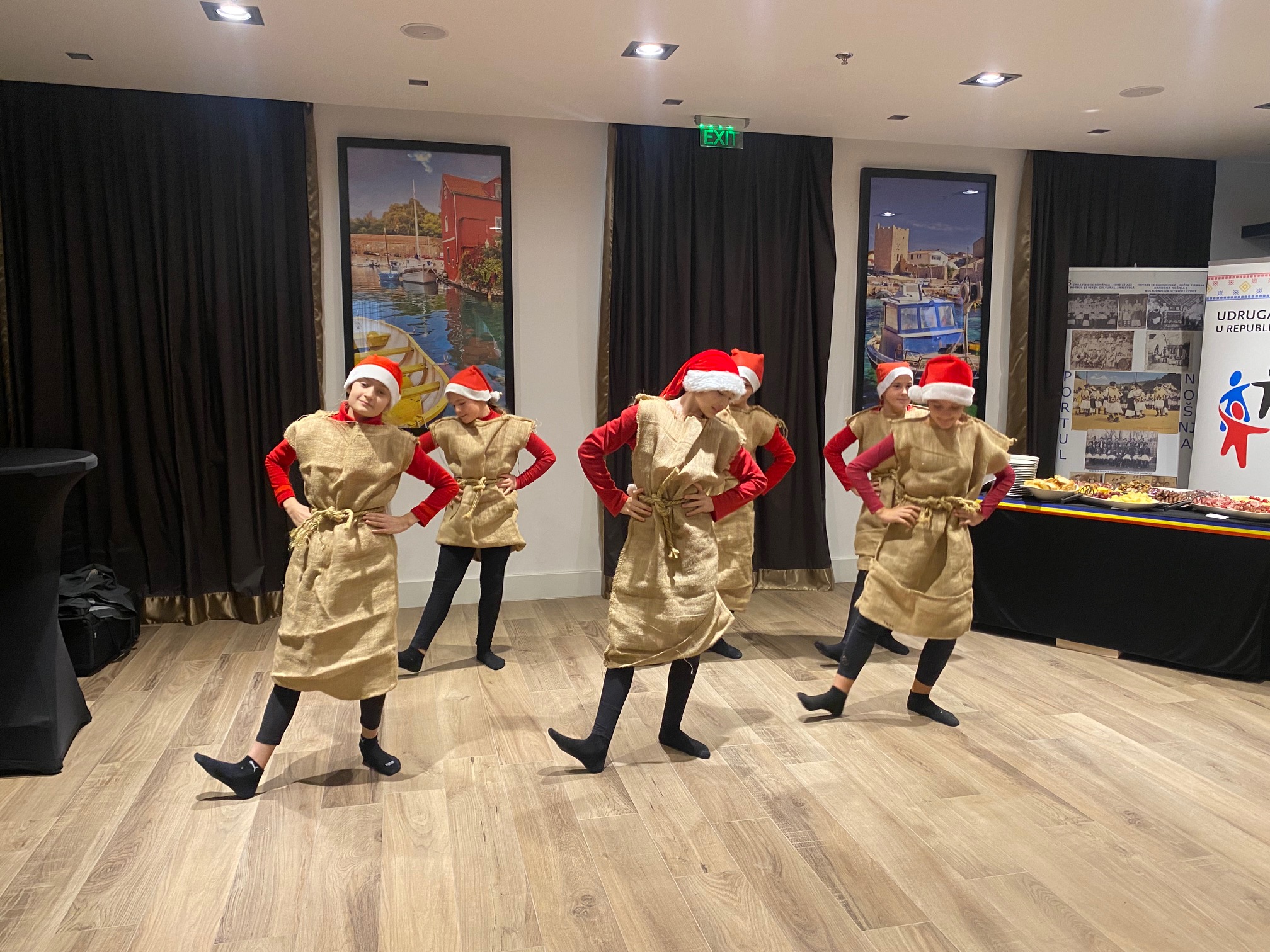
This Sunday’s Gastroadvent was enhanced by Dance Studio “Dimache” under the direction and choreography of Remus Dimache, ballet soloist of the Croatian National Theater in Split. For this occasion, Remus Dimache added elements of Romanian folklore to the choreography of modern dance.
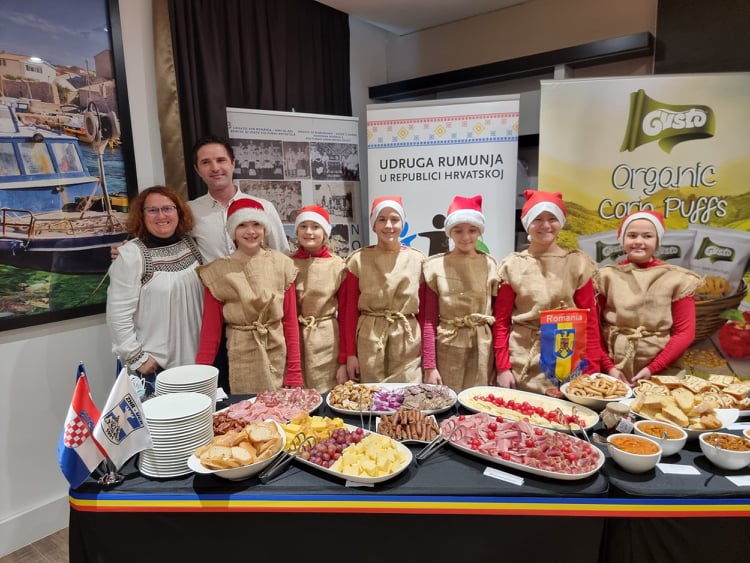
The designer of this year’s Gastroadvent wreath is artist Tonka Alujević, who depicted the Advent wreath from a lifebuoy as “a maritime object that serves to save a man who, for various reasons, is helpless in the sea and is in mortal danger.” And that is precisely the health and political position we are in at the moment.
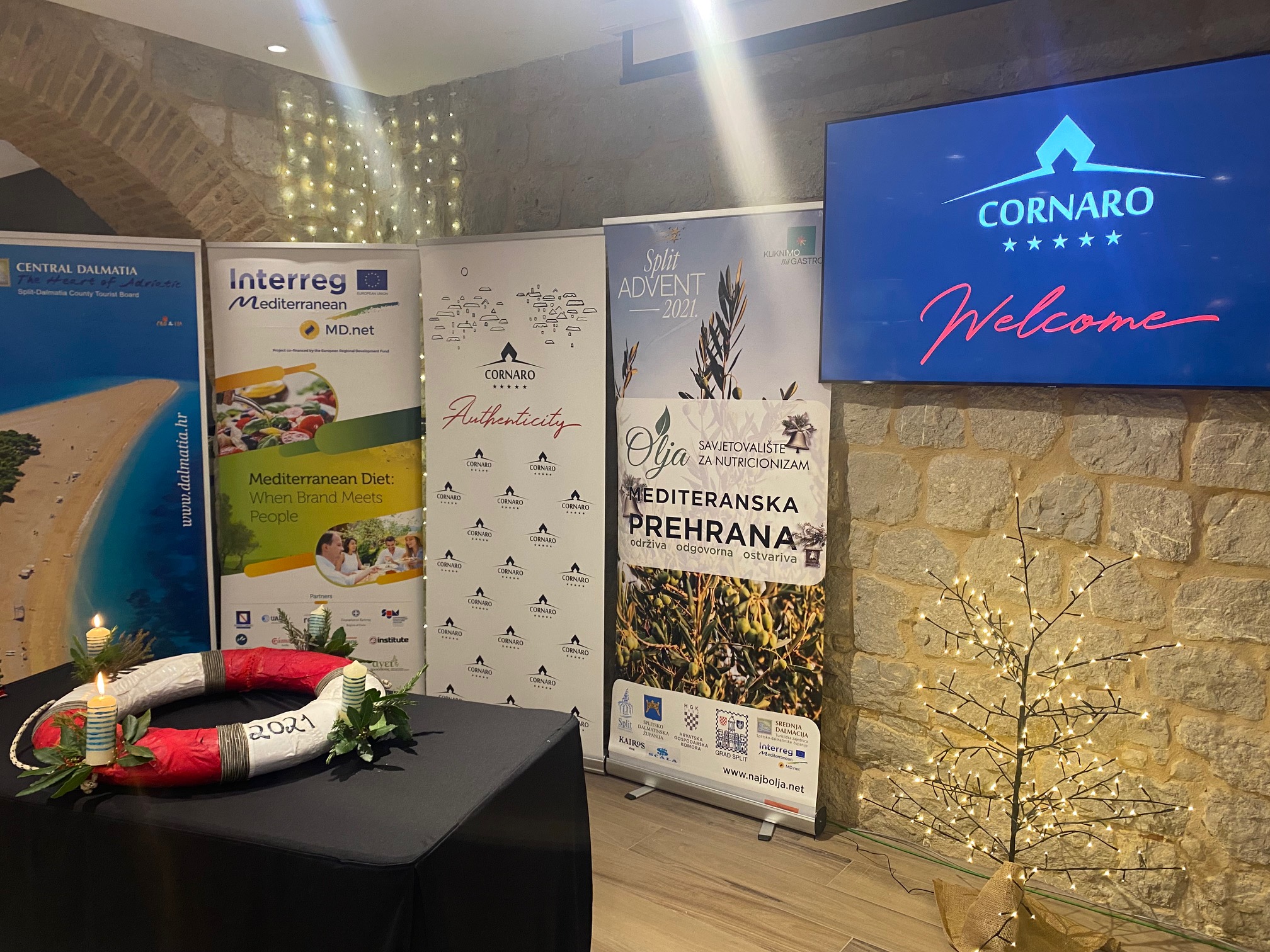
Split Gastroadvent is held every Advent Sunday at a new location, honoring a different group of journalists with new culinary creations at each event.
To read more about lifestyle in Croatia, follow TCN’s dedicated page.

